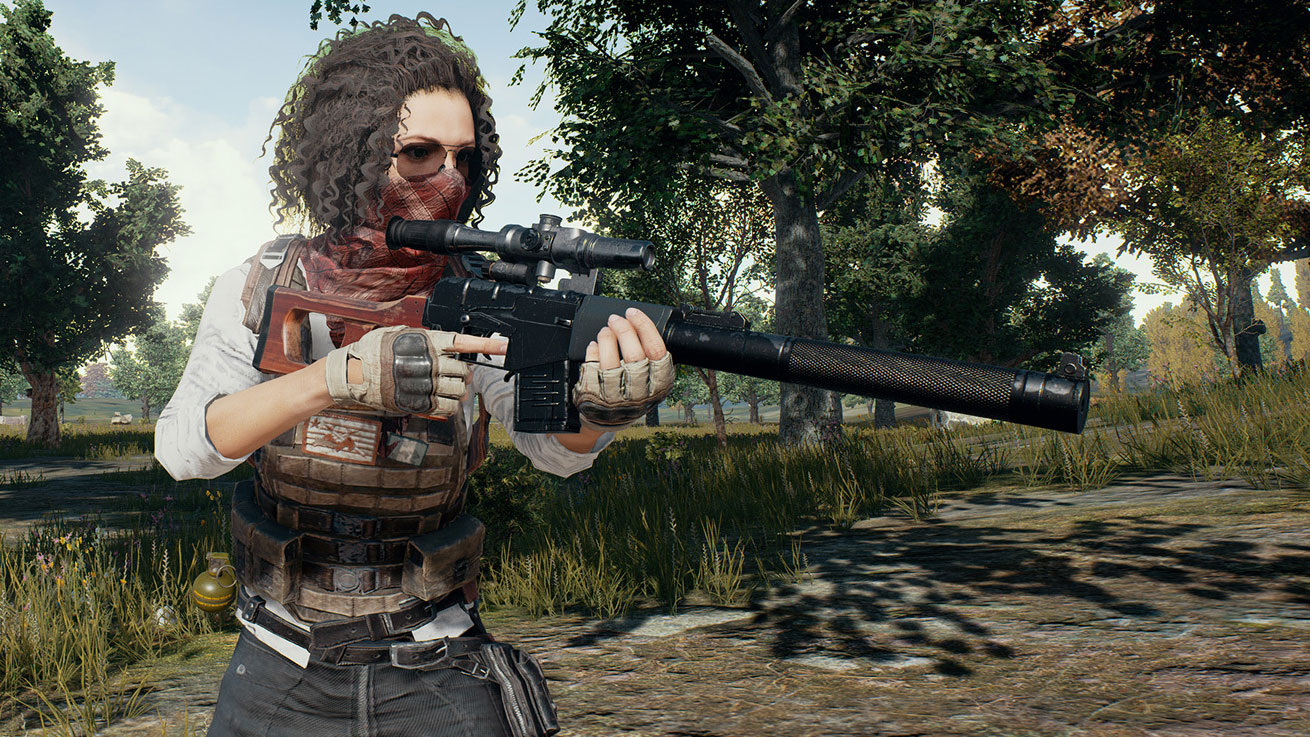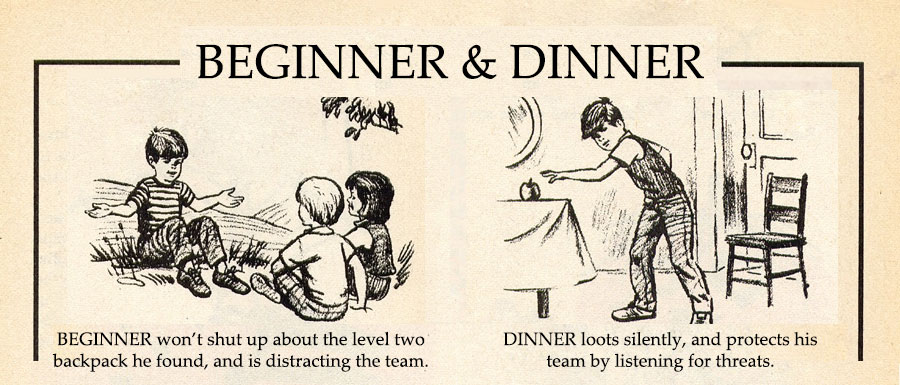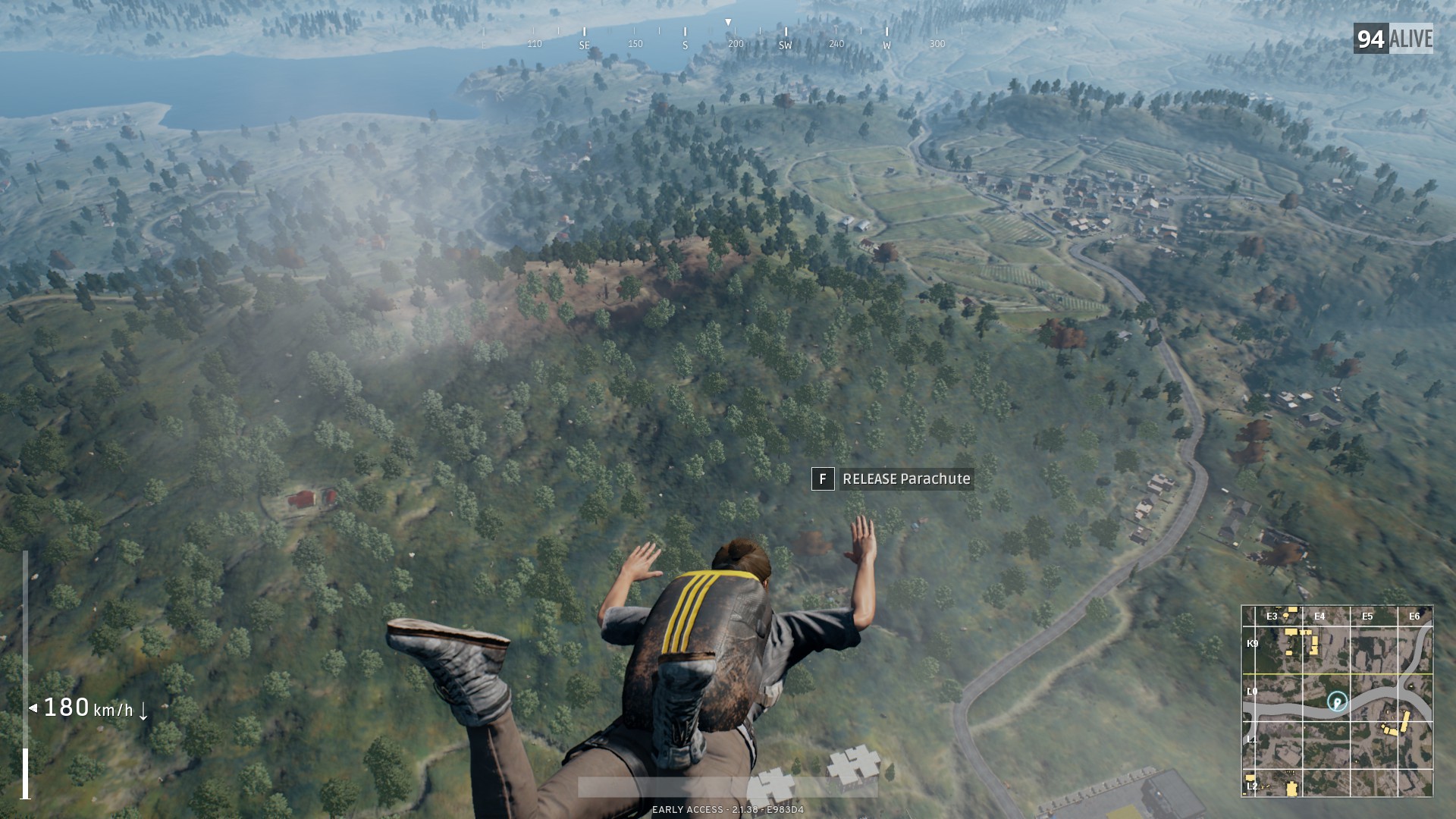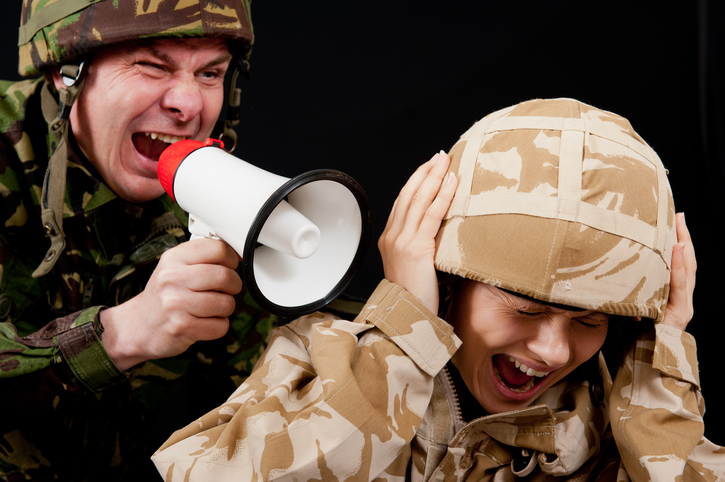How to communicate in PlayerUnknown's Battlegrounds to keep your squad alive
Bad comms will get you killed. Use this proven Arma 3 method for reporting threats.

Speaking is a skill in PlayerUnknown's Battlegrounds. The game's wide-open, 8x8 km map sets the table for long-range engagements and periodic ambushes, raising the value of crisp communication.
If you want to eat more chicken dinners, tightening your comms might make a bigger difference than trying to tighten your aim. Stop getting your friends killed with vague-ass callouts like "There's a guy over there… on the left!" with these tips, including a reporting method developed by veteran Arma players.
Cut the gear chatter
The keys are brevity and clarity.
Many of the otherwise nice and deadly people I play PUBG with have the attitude that if the squad collects enough equipment, we'll win. These gear optimizers give play-by-play commentary of every piece of loot they're seeing, where it is, and turn the match into an Egyptian bazaar of weapon attachments. "Anyone want an auto-shotty? … Letsee, level two helmet here ... I found some painkillers, does everyone have boosters? … OK, there's AK ammo in the garage, should I take it? ... Anyone need a red-dot?"
Attention is one of PUBG's most valuable resources. Gear matters, but fixating on optimizing it hurts your team's ability to listen for threats and focus. This isn't Diablo—you're in an ever-shrinking sandbox with 90 other people who are hunting you. Keep quiet, grab the valuable loot you see and wait for a natural opportunity to exchange it. Reducing chatter helps your team observe and think five minutes ahead.

Above: A helpful illustration for misbehaving teammates.
Talk this way
The ancient quote factory Sun Tzu believed that “If words of command are not clear and distinct, if orders are not thoroughly understood, then the general is to blame." This is the broad idea in Battlegrounds: convey threats efficiently.
Happily, the hardcore players of PUBG's grandparent game figured out how to do this a long time ago. For more than a decade, ShackTac has been the model for organized Arma play—a community that embraces military procedure and roleplaying, but in service of fun rather than at the expense of it.
Keep up to date with the most important stories and the best deals, as picked by the PC Gamer team.
ShackTac's founder and leader, Dslyecxi, wrote a 350-page manual on Arma 3 called the Arma 3 Tactical Guide. In the guide, Dslyecxi outlines a chronological structure for communicating: Alert, Orient, Describe, Expound. This method puts the the most valuable information at the beginning of your reports, helping your squadmates react more quickly.
Above: scrub to 0:47 for Dslyecxi's explanation of ShackTac's Arma 3 communication method, which is broadly applicable to PUBG.
1 ALERT
"Contact!"
If you see an enemy, say or scream "Contact."
Prefixing any report with "Contact" immediately flags what you're about to say as having to do with a new, visual confirmation of an enemy. It's a gong, an alarm that distinguishes ordinary conversation from hard, certain enemy encounters. (Situational alternatives: "Car," "Enemy." Alerts like "Sniper" or "Incoming!" can also be useful, as they convey the type of threat, and roughly their distance, in a single word.)
2 ORIENT
"...northeast!"
The 'where' of the thing you're reporting should be the second thing out of your mouth. The mistake most players make here is using subjective language: one man's "left" is another man's "right," and one woman's "that building" could be… literally anywhere.
"Here," "there," "left," "right," "behind," and similar words should be sparingly used. Unless your squad's position and facing is very uniform (e.g. you're all riding in a Dacia), try to use a compass bearing whenever possible.
3 DESCRIBE
"...two guys!"
Typically: How many enemies. You might omit this information if you're playing PUBG as a duo.
4 EXPOUND
"...running right at us!"
Have they spotted you? Are they being shot at by another group? Are they carrying guns that are worth noting? Expound valuable details that will help your team make a decision about whether and how to engage. I try to guess at the intentions of my enemy by looking at the map and the circle—what's their likely next move?
You can also estimate ranges by using your location on the map, along with landmarks on the map. Each small square on PUBG's map grid represents 100m; each large square is a kilometer.
Examples
The keys, as echoed by Dslyecxi's guide, are brevity and clarity: saying as little as possible to communicate as much as possible.
Good, noble contact reports:
"Two contacts, 90, up the hill."
"Car far, north, moving away from us."
"Sniper, northeast, facing toward us, prone."
"Contact close, large rock, left side!"
Above: A bad 'Orient' report: "Right there to your right, by the tree to your left… the other tree."
Bad, shameful contact reports:
"He's to the left behind the… uh… the house I was in earlier, he's next to it, between the trees." (Too subjective.)
"Over there! Two guys, shooting!" (Vague.)
"Uh, OK, yes, I have contact of them - they're… moving east in the blue Dacia, down the road, by the cafe building with the neon sign on top of the roof, turning left, carrying three guys in the back, and I think one of them has a Kar-98 sniper rifle with an 8X scope because they were at the supply crate we saw earlier." (Unnecessarily detailed.)
"Shit, shit, shit! Help!" (Panicked.)

Discussing the jump
PUBG's most common refrain: "So... where do you wanna go?" Some quick tips to assure a smooth flight:
- Clearly declare a destination
- Nominate a backup LZ ("If Mylta is packed, land at green marker and we'll take the car.")
- Give an orientation ("Fly East," "Bearing 330")
- Give a countdown ("3… 2… 1… jump!")
- Repeat orientation
- Use building slang, geometry, or coloration to add detail as you land
PUBG's alphabetical map grid references were initially helpful for high-level clarity, but the marker system eliminates the need for using them.

Glossary – useful jargon and phrases
"Move to red/blue/green/yellow"
"Taking [inaccurate] fire" vs. "I'm hit" vs. "I'm down"
There's a seriously fine line between saying "FYI I am being shot at, but not accurately" and "The bad men, they are shooting out all of my blood; my death is imminent." Shouting in panic endangers your teammates because many players will leave a safe position in order to gain information.
"Say again, [teammate name]"
Replying "What?" when you aren't sure what you heard is often too vague.
"KO" and "Killed [1, 2, 3, 4]"
Always distinguish between a KO and a kill when calling out. And when fighting another squad, keep a verbal count of how many cumulative kills you've racked up. Did we get them all? This is especially important at the beginning of the game, or when clearing a building.
"Available car" vs. "Car moving"
Instantly eliminate confusion between dangerous cars and docile, wild cars.
"Regroup [on me/location]"
"Frag out" vs. "Grenade"
Are you throwing a grenade, or is one being thrown at you? Use different words to describe these situations, and save lives.
"Left to right," or "lateral"
Describing an enemy that's moving laterally to you can be tricky. A good report might be: "Enemy northeast, 45, moving right to left, toward Georgopol."
"Seven six two," "Five five six"
You've got rifle ammo, but which kind?

Evan's a hardcore FPS enthusiast who joined PC Gamer in 2008. After an era spent publishing reviews, news, and cover features, he now oversees editorial operations for PC Gamer worldwide, including setting policy, training, and editing stories written by the wider team. His most-played FPSes are CS:GO, Team Fortress 2, Team Fortress Classic, Rainbow Six Siege, and Arma 2. His first multiplayer FPS was Quake 2, played on serial LAN in his uncle's basement, the ideal conditions for instilling a lifelong fondness for fragging. Evan also leads production of the PC Gaming Show, the annual E3 showcase event dedicated to PC gaming.

